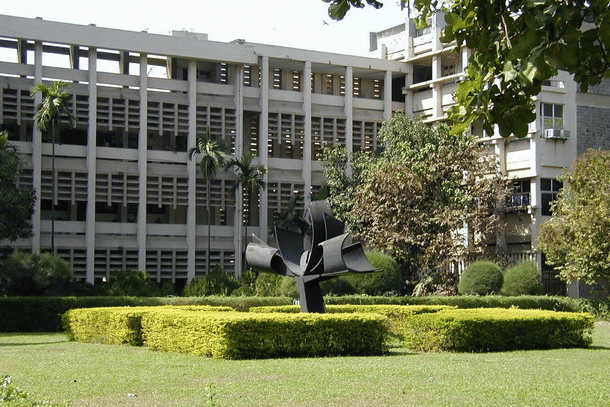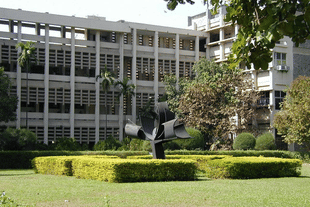News Brief
IIT Bombay Best In India, Among World's Top 150 Universities: QS World University Rankings 2024
Swarajya News Staff
Jun 28, 2023, 10:59 AM | Updated 10:59 AM IST
Save & read from anywhere!
Bookmark stories for easy access on any device or the Swarajya app.


In the latest edition of the QS World University Ranking released late Tuesday (27 June) night, the Indian Institute of Technology (IIT) Bombay ihas achieved its highest rank ever, breaking into the world's top 150 universities.
This is the first time in eight years that an Indian higher education institution has made it to the top 150 list.
In 2016, the Indian Institute of Science (IISc) Bangalore previously achieved this feat with a ranking of 147.
This year's edition of the rankings has seen a remarkable leap by IIT Bombay, as it climbed 23 positions to secure the 149th rank globally.
However, there have also been significant fluctuations in the list.
IISc fell 70 positions from the 155th rank to 225 in the latest QS rankings.
It now stands as the third-highest ranked Indian institution, compared to being the best Indian institution last year.
Similarly, IIT Delhi fell from 174 to 197, IIT Kanpur from 264 to 278, and IIT Madras from 250 to 285, among others.
The fluctuation in rankings has been partly attributed to a revision of the assessment parameters this year by the UK-based ranking agency, QS Quacquarelli Symonds.
The agency introduced three new indicators, namely sustainability, employment outcomes, and international research network, each carrying a weightage of 5 percent.
QS made adjustments to the importance assigned to other parameters in order to accommodate the three new indicators.
The weight assigned to the academic reputation indicator has been reduced from 40 percent to 30 percent, reflecting a change in the evaluation of institutions' importance placed on academic reputation.
The weight given to the faculty-student ratio has been decreased from 15 percent to 10 percent, while the significance of the employer reputation indicator has been increased from 10 percent to 15 percent.
IIT Bombay has excelled in employment reputation and citation per faculty.
Notably, there has been a significant improvement in citation per faculty, with the score rising from 55.1 to an impressive 73.1.
IIT Bombay has demonstrated excellence in the parameters of employment reputation and citation per faculty.
Notably, there has been a significant improvement in citation per faculty, with the score rising from 55.1 last year to an impressive 73.1 this year.
Over the past five years, IIT Bombay has improved its employer reputation ranking from the 102nd to the 69th position, and its citations per faculty rank from the 226th to the 133rd.
IIT Bombay director Subhasis Chaudhuri was quoted by The Indian Express as saying that the pandemic lockdown has boosted the research productivity of the institute. This has resulted in the publication of numerous research papers in high-impact journals, which are now being cited and contributing to the improved ranking, he added.
According to Andrew Mac Farlane, QS' senior research manager, IIT Bombay has produced 15,905 academic papers from 2018 to 2022, generating 143,800 citations.
Over this period, the institute has recorded a research growth of approximately 17 per cent.
The average citations per faculty at IIT Bombay are nearly four times the global median. The research output is evenly split between Engineering & Technology and Natural Sciences, with particular interest in the highly collaborative work across Astrophysics.
Mac Farlane highlighted that IIT Bombay's research quality is further demonstrated by the fact that 30 per cent of its output is published in the top 10 per cent of academic journals by impact.
This figure surpasses the global average by 6 per cent and is 15 per cent higher than the average among Indian institutions.
However, the institute is yet to show the same level of improvement in internationalisation metrics, such as foreign students and foreign faculty.
India ranks seventh globally and third in Asia, with 45 universities featured in this year's rankings.
Japan leads in Asia with 52 universities, followed by China (Mainland) with 71 universities.
The University of Delhi (ranked 407th) and Anna University (ranked 427th) made their debut in the top 500 universities.
This year, four new Indian universities have been ranked, including University of Petroleum and Energy Studies (UPES), Chitkara University, Guru Gobind Singh Indraprastha University, and the Indian Statistical Institute.
The World University Ranking is topped by the Massachusetts Institute of Technology (MIT) in the US for the twelfth consecutive year.
Cambridge University and Oxford University in the United Kingdom closely follow the MIT as the top universities.
Notably, the National University of Singapore (NUS) climbed three positions from last year's 11th rank, becoming the first Asian university to enter the top 10.
American universities dominate half of the top 20 institutions worldwide, with UC Berkeley making a comeback to the top 10 list after a long absence.
ETH Zurich maintains its title as the best university in Europe for the sixteenth consecutive year.





